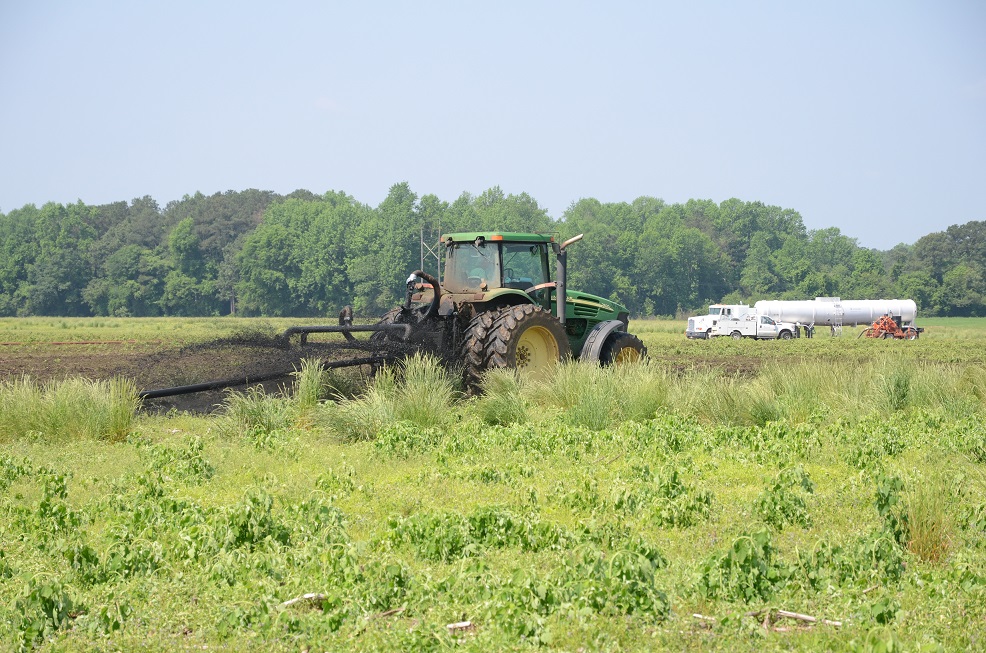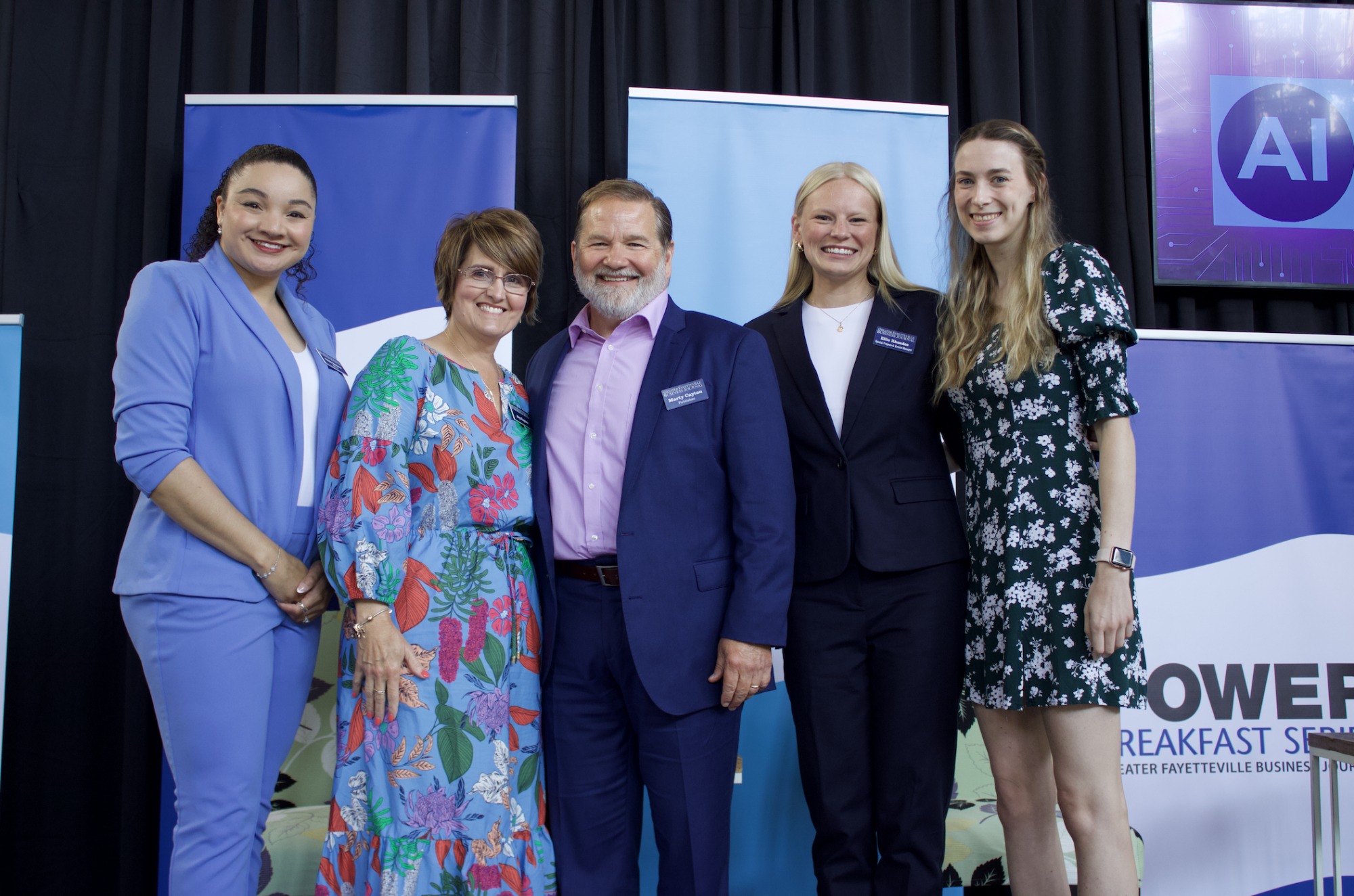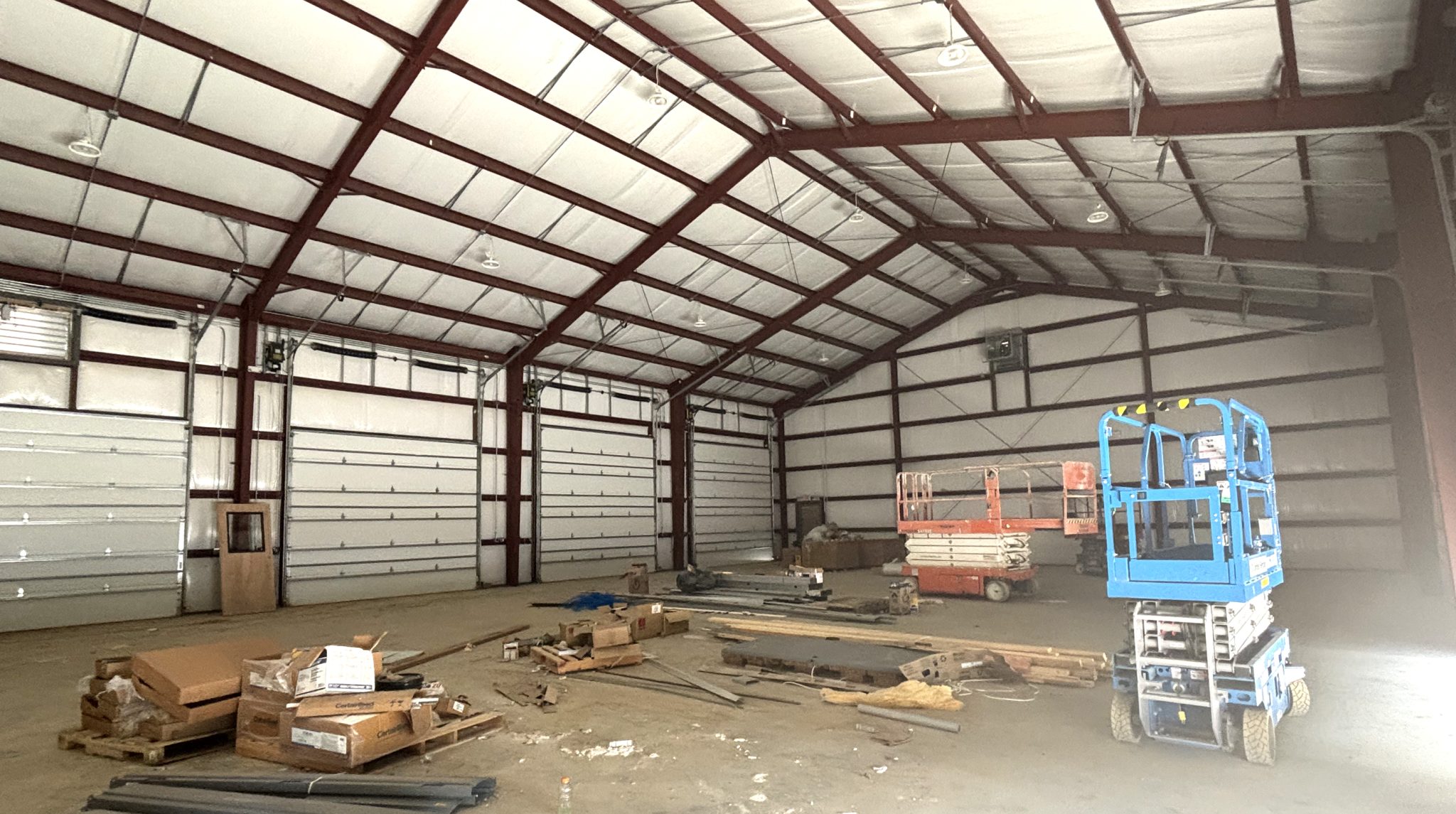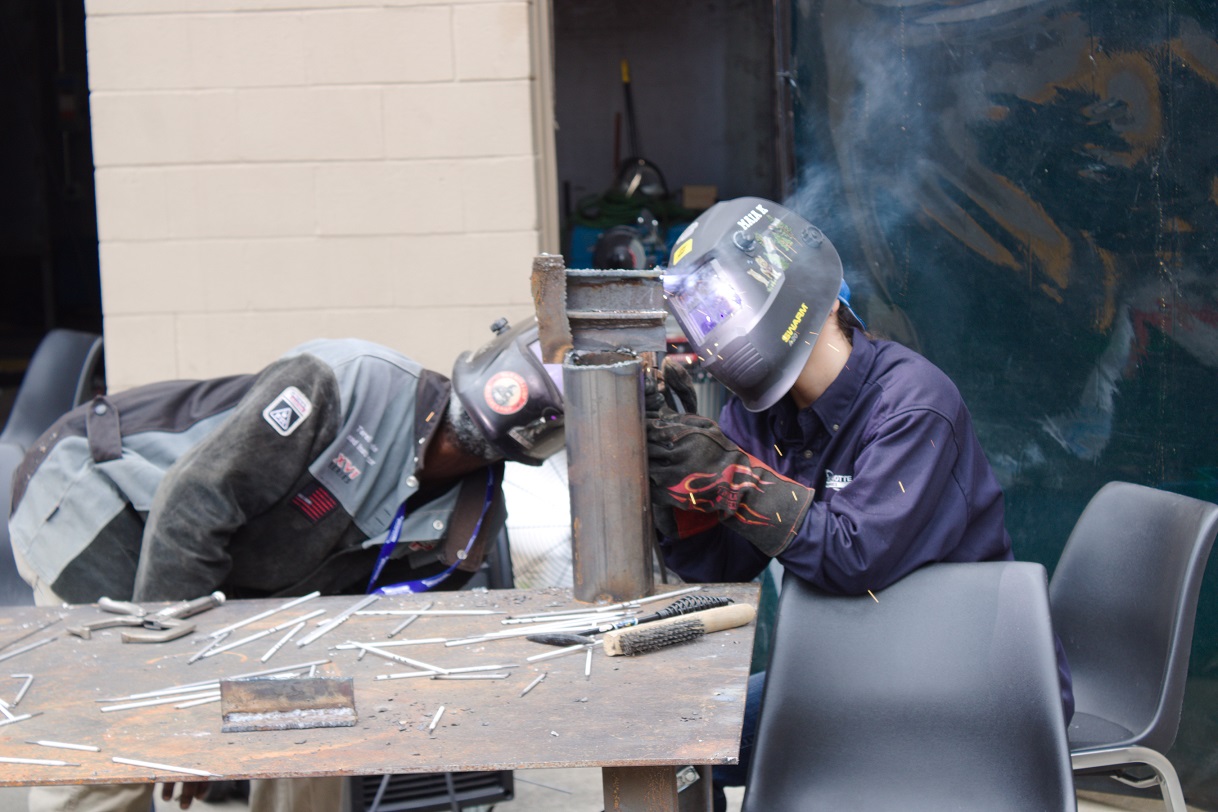
The Fayetteville Public Works Commission's Residual Management Biosolids Program creates an incredibly positive impact on Fayetteville and other surrounding counties. A co-op program within the local farming community, the Public Works Commission recycles biosolids with this program on approximately 4,000 acres of farmland in Cumberland, Robeson, and Hoke counties at no cost to farmers.
Now more than ever, the program is particularly important for the farmers themselves, their crops, and the potential savings the program offers in operating costs.
“The nutrient content and value of nitrogen and phosphorus within the fertilizer generated through the biosolids program, creates a great benefit to farmers and it is extremely cost effective to apply this fertilizer because it is not so expensive as if the farmers had to purchase their own fertilizer which has gotten very costly. Fertilizer costs have gone through the roof,” said Fayetteville Public Works Commission’s Water Reclamation Treatment Facilities Manager Chuck Baxley.
Crop health and the yield of these crops within the crop growing processes increases with the uptake of these nutrients provided through the biosolids program. Local communities might have questions about how the biosolids process is implemented and then ultimately rolled out to the farms. The Fayetteville Public Works Commission Biosolids Program contracts with a company that loads tanker trucks and transports the stabilized biosolids generated by the water reclamation facilities. The tanker trucks are driven out to a variety of permitted farm sites and their applicators apply the biosolids throughout the fields for the farmers.
Liquid biosolids are either applied to the surface, or injected below the ground at the nitrogen rate, one example of a nutrient, required by the crop. This method of application saves an incredible amount of landfill space by reducing the impact on landfills when the biosolids are processed and provide the farmers with the fertilizer they require anyway. This is a true win-win program because it transforms nutrient rich waste into recycled biosolid and the fertilizer keeps the soil from being depleted by multiple plantings. Farmland therefore retains these high-quality nutrients and makes them available to the crops on a consistent basis when these methodologies are utilized within the farming process.
Following the Public Works Commission’s decision to create this outstanding treatment process back in 1987, there has been great value in the program for the community at large. This program is closely observed, monitored, and highly regulated by both state and federal agencies and this oversight keeps the biosolids program in strict compliance. Government involvement ensures within the biosolids process from start to finish, that all involved maintain strict integrity within the program. The biosolids effluent spray irrigators and the land appliers must all receive special training and state certifications, and no application happens until all site conditions are fully met.
Typical crops produced are hay, corn, soybeans, wheat, oats, rye, and sorghum. These specific crops are planted, harvested, and used as livestock feed only, and are not at all fit for human consumption. Farmers involved with the program use the biosolids as both fertilizer and soil amendment, which keeps the crops in good condition annually.
After harvest, the row crops are sold to grain markets for livestock feed and the grasses get sold to the public as livestock feed. Then, after this chain of events transpires within the full cycle, the recycling process begins all over again. Biosolids are always generated, so the treatment plant is of significant help to keep these biosolids out of landfills.
Simultaneously, the farmers receive assistance with free access to fertilizer rich in nitrogen and phosphorus which is very much needed for these crops to thrive. Farmers reap the rewards of significant savings on both fertilizer and the application process. Resources they retain through the program can then be reinvested into their farms.
“The Public Works Commission side of the treatment process generates methane to operate the boiler and saves us on the costs to maintain and operate. Otherwise, the Commission would have to pay for the power to generate to run the boiler. This provides a tremendous savings as opposed to using diesel fuel for the boiler operation,” said Baxley. “Also, the Commission has a 750 acre farm out on North Carolina Highway 24 where crops are harvested to help recoup money. Though this is not an incredible amount of money made, they did earn almost $70,000 through local sales. This puts money back into the community program or to the Public Works Commission and lowers the rate of payer impact so overall this helps everyone from both a community and Public Works Commission perspective.”
The two water reclamation facilities that produce biosolids in the area have won a number of awards. A few of these awards are: Cross Creek WRF – NC AWWA WEA George W. Burke Safety Award (2016) and the 1994 National Environmental Protection Agency Operations and Maintenance Award. The Rockfish Creek WRF – NC AWWA WEA George W. Burke Safety Award (2016); 1988 National Environmental Protection Agency Operations and Maintenance Award; 2019 Excellence in Operations & Maintenance Award for the Eastern Region presented by the NCAWWA-WEA.
________________________________________________________________________________________________________________________________________
Anyone interested can learn more about how the Biosolids Program delivers a positive, profitable outcome! More information is available from the Fayetteville Public Works Commission Residual Management Biosolids Program online at www.faypwc.com.
The Wastewater/Sewer Plants that handle biosolids can also be reached by phone at 910- 223-4700.

GFBJ staff joined by Publisher Marty Cayton’s wife pictured at the 2025 Q2 Power Breakfast. Left to right: Faith Hatton, Joy Cayton, Marty Cayton, Ellie Rhoades and Stephanie Meador.Well, in case LinkedIn failed to inform you I have now been at the G

The 6,000-square-foot station house will provide cover and added security for Campbell’s four mobile clinics. Construction is expected to be wrapped in August of 2025. Photos by Campbell University. Campbell’s four Mobile Health and Education Cl

Dr. Geddis Dr. Janell Geddis assumed the role of president for Miller-Motte College’s Fayetteville campus in February of 2024. Dr. Geddis joined MMC with 15 years of experience in higher education, with most of her roles serving community